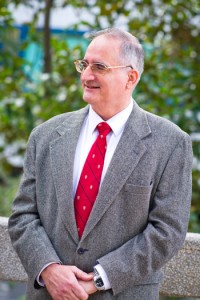Philip J. Ivanhoe is Chair Professor of East Asian and Comparative Philosophy & Religion at City University of Hong Kong, where he serves as director of the Center for East Asian and Comparative Philosophy (CEACOP) and director of the Laboratory on Korean Philosophy in Comparative Perspectives.
1. The Values of Spontaneity (CCP Talk)
Time: Feb 18th 2015 12 – 2pm
Location: East Duke 209 (auditorium)
Abstract: There is a widespread intuition that acts displaying “spontaneity” possess value at least in part by having this quality. While many share a belief in the value of spontaneity, there is less of a consensus concerning what spontaneity is. We find two primary senses of the word in Western philosophical writings. The first takes spontaneity to be that quality of actions that arise or proceed “entirely from natural impulse” or that come “freely and without premeditation or effort.” Sorting out the various aspects of these and other Western senses of spontaneity is a worthy and challenging problem but not the concern of this essay. I shall, though, return to the two Western senses of spontaneity noted above in the conclusion of my presentation. My primary concern is to describe and analyze two early Chinese views of spontaneity. I will take as my sources Confucian and Daoist texts from the pre-Qin period (i.e. before 221 B.C.E.). My goals are first to describe two related yet distinct types of spontaneity found in these texts, which I shall refer to as “untutored” and “cultivated” spontaneity, and show that they share deep and important similarities. Next, I shall argue that the similarities they share are the primary source of the feelings of satisfaction and joy that such actions are thought to arouse in both those who perform and those who observe them. Finally, I will argue that these two early Chinese conceptions of spontaneity can help us to understand some of our own intuitions about the ethical value of spontaneity.
2. The Contemporary Significance of Confucian Views about the Ethical Values of Music (CCP&PAL Joint Talk)
Time: Feb 20th 2015 12 – 2pm
Location: West Duke 202
Abstract: For most people in contemporary society, music is a form of recreation: a means of personal enjoyment and relaxation, widely regarded as primarily a kind of diversion and largely thought to be a matter of individual taste. For the greater part of human history, however, music most often has been regarded as a spiritual enterprise, laden with meaning, power, and significance and closely related to the well-being of individuals, groups, institutions, and states. In other words, for most of human history, music has been regarded as a much more serious matter; this was how it was understood in ancient China. The Confucian tradition teaches us important lessons about the music in and of our lives. In this presentation, which represents a chapter in a forthcoming book on the contemporary relevance of Confucian philosophy, I describe some of the ways traditional Confucians thought music was critical for personal and social wellbeing and explore respects in which these ideas remain important resources for understanding both music as well as our selves today.

hi this is a great website that you have, thank u 4 sharing it with us.